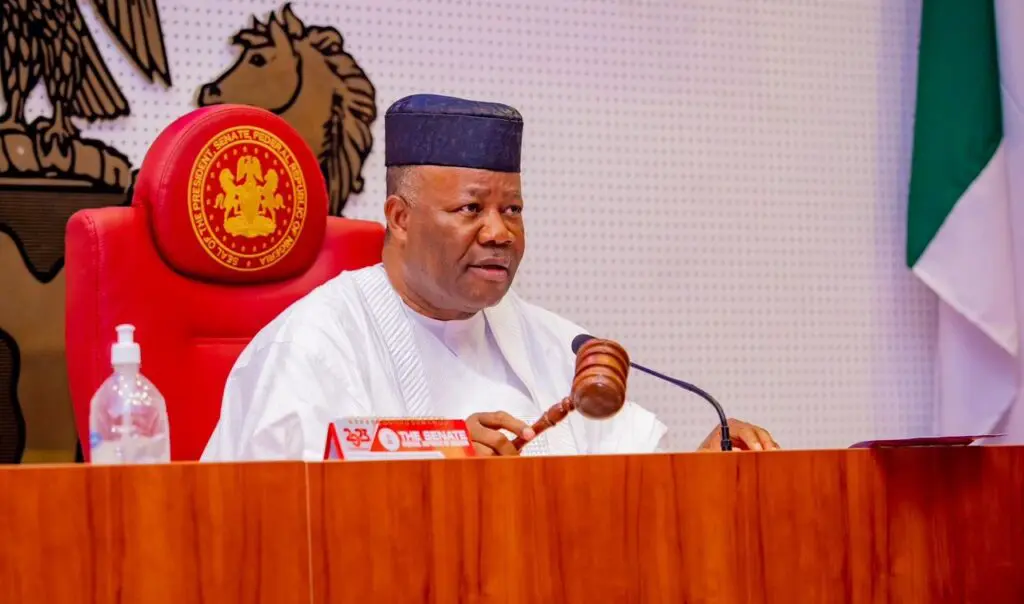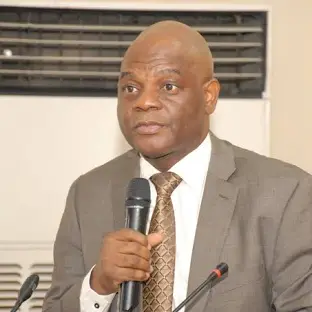As the Nigerian Senate considers a new bill to regulate the social media blogosphere—despite widespread criticisms, Korede Abdullah, Southwest Correspondent for Africa Health Report, examines the controversial legislation and the backlash it has sparked.
Over the past two months, the nation’s human rights organisations have been raising public attention to a new bill in Nigeria’s Senate aiming to gag or suppress free speech in a nut shell.
The controversies occasioned by the bill have also drawn the ire constitutional lawyers, who warn it could be another step toward silencing public dissent under the guise of data protection.
Pointedly, the bill is sponsored by Senator Ned Nwoko (Delta North), and it seeks to amend the Nigeria Data Protection Act (NDPA) 2023 by requiring social media platforms to establish physical offices within Nigeria’s borders.

The proposal, which has already passed a second reading in the Senate, is being framed as an effort to address “glaring omissions” in the existing legislation.
Critics Perceive it Differently
“This is not about data protection,” said Dele Lawal, a digital rights activist while speaking with Africa Health Report (AHR). “It’s a smokescreen for control. For years now, the government has been trying to bring social media under its thumb, and this is just the latest tactic”, he asserted.
Constitutional lawyer Ifeoma Okonkwo echoed these concerns. “Mandating physical offices is not only economically impractical in today’s digital economy, it is a direct violation of Section 39 of the Nigerian Constitution, which guarantees freedom of expression,” she said. “This bill contradicts both the Constitution and the Freedom of Information Act.”
NDPA as Duplication of Other Legislations
The National Digital Protection Act (NDPA) has faced mounting criticism for being a redundant piece of legislation, with experts pointing out that many of its key provisions are already addressed under existing laws such as the Cyber Crimes Act and the Terrorism Act.

Critics argue that instead of streamlining digital governance, the NDPA duplicates legal efforts, creating confusion in enforcement and compliance.
Legal analysts have also questioned the necessity of the Act, suggesting that it reflects a lack of coordination among lawmakers and regulators who are struggling to keep pace with the evolving digital landscape.
In addition to concerns over redundancy, the recent amendment to the NDPA has sparked outrage among digital rights activists and industry leaders.
They contend that the changes impose excessive regulatory burdens on technology companies, particularly smaller firms that may lack the resources to comply.
Moreover, the amendment has raised alarms about potential government overreach, with vague language that could be exploited to justify online censorship or suppress dissenting voices.
These developments have fueled debates over digital freedom, transparency, and the need for more balanced legislation that protects both national security and civil liberties.
Decade-long Pattern to Gaggle Media
Critics argue the bill is part of a decade-long pattern of attempts by Nigerian lawmakers to regulate online speech. Previous efforts include the widely condemned Social Media Bill (2019), which was shelved after massive public backlash and accusations of plagiarism from Singaporean legislation.
The Buhari administration also faced global criticism for his attempt to suspend Twitter (now X) during the 2020 #EndSARS protests, a move seen as a crackdown on dissent.

“This bill proposed by Senator Ned Nwoko, like those before it, is fundamentally anti-democratic,” said Chief Tayo Oloruntola, a legal practitioner who with Africa Health Report (AHR).
“It seeks to control what people can say online and how they can say it. Nigerians must be vigilant and ready to defend their right to free expression”, he said.
“The Constitution is clear,” said Okonkwo. “Freedom of expression is a right, not a privilege. It cannot be traded for political convenience.”
Foreign Tech Giants Pay Billions in Taxes
In the first half of 2024, international tech giants such as Facebook collectively paid an estimated $2.5 billion in global taxes, which included withholding taxes on ad revenues generated from Nigeria—even though these companies do not maintain physical offices within the country.
Despite their remote operations, these firms play a significant role in Nigeria’s digital economy by offering remote job opportunities, freelance contracts, and digital skills training to Nigerian youth.
This growing digital engagement has not only contributed to local income generation and skills development but also helped stimulate entrepreneurship and innovation in sectors like marketing, software development, and online education.
However, the absence of a formal presence raises ongoing questions about fair taxation, regulatory oversight, and how best to capture economic value from the digital activities of foreign companies operating virtually within national borders.
“This obsession with forcing tech firms to open local offices ignores the reality of today’s digital economy,” said tech policy expert Emeka Udo. “The danger here is that by making Nigeria a hostile environment for digital platforms, the government is effectively pushing them away—along with the jobs and opportunities they bring.”
The Double-Edged Sword of Social Media in Nigeria
AHR investigations show that social media has become a transformative force in Nigeria, especially in recent years, revolutionizing communication, business, activism, and even politics.
Platforms like Twitter (now X), Facebook, Instagram, and TikTok have opened up new frontiers for the country’s predominantly youthful population, offering not only a space for self-expression and social engagement but also critical economic opportunities.
Platform for Empowerment
Social media has provided a much-needed lifeline for Nigerian youths in a country where unemployment remains persistently high. Through digital platforms, many young Nigerians have become influencers, content creators, online vendors, freelancers, and digital marketers.
These platforms have allowed them to build personal brands, access global markets, and earn livelihoods independent of Nigeria’s traditionally limited formal employment sectors.
The rise of tech startups, remote work opportunities, and online businesses is directly linked to the democratization of information and access created by social media. For many, it’s not just a platform—it’s a marketplace, a networking hub, and a learning environment rolled into one.
Social media has become, in essence, a digital economy, empowering a generation that has often been neglected by traditional institutions.
The Political Irony: Freedom vs Control
Despite its evident advantages, social media has also become a battleground between the Nigerian populace and its political leaders.
Over the years, Nigerian politicians have shown a paradoxical relationship with social media—enthusiastically using it to campaign, connect with constituents, and push party propaganda, while at the same time seeking to regulate or suppress it when it is used as a tool for criticism and accountability.
This irony reached a peak in 2021 when the Nigerian government, led by President Muhammadu Buhari at the time, suspended Twitter after the platform deleted a controversial tweet from the president.
The ban, which lasted several months, was widely seen as an attempt to silence dissent and curtail freedom of expression. Efforts to pass laws such as the “Social Media Bill” and the “Hate Speech Bill” have also been met with strong resistance from civil society.
The Voice of Resistance: Human Rights Activists Speak Out
Human rights activists and civil society organizations have continuously challenged any attempt to stifle digital freedoms in Nigeria. Groups like Amnesty International, Enough is Enough Nigeria (EiE), and SERAP (Socio-Economic Rights and Accountability Project) have condemned the government’s actions as unconstitutional and repressive.

Activists argue that social media has played a crucial role in holding leaders accountable and promoting transparency. Notably, during the #EndSARS protests in 2020, social media was instrumental in organizing demonstrations, amplifying voices of victims of police brutality, and drawing global attention to the movement.
Reacting to recent government efforts to monitor and license social media users, activist Aisha Yesufu said, “The government wants to control the narrative. But Nigerians have found their voice, and no amount of censorship will take that away again.” Many share this sentiment, seeing social media not just as a platform, but as a symbol of freedom.
Story of Empowerment and Resistance
The story of social media in Nigeria is one of empowerment and resistance. It has given young Nigerians a voice and a means to survive, thrive, and engage with the world on their own terms.
Yet, it also reveals the tensions between a digitally empowered populace and a political class uncomfortable with losing control over the national narrative.
Tug of War Continues
As Nigeria navigates the complexities of digital governance, one thing is certain—social media is now an inseparable part of the nation’s socio-political and economic landscape.
The ongoing debate reflects a broader struggle over how to balance national security, individual privacy, and freedom of expression in an increasingly connected society.
With the proposed amendment to the Nigeria Data Protection Act (NDPA) 2023 still under legislative scrutiny, civil society groups are rallying citizens to make their voices heard. While the bill’s fate remains unclear, the larger conversation about digital rights and free speech in Nigeria is only just beginning.



